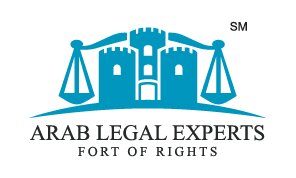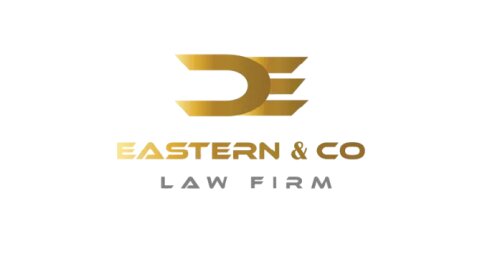Best Commercial Litigation Lawyers in Dokki
Share your needs with us, get contacted by law firms.
Free. Takes 2 min.
List of the best lawyers in Dokki, Egypt
1. About Commercial Litigation Law in Dokki, Egypt
Commercial litigation in Dokki, Egypt sits within the broader Egyptian civil and commercial law framework. It covers disputes arising from contracts, sales, agency agreements, corporate governance, and debt recovery between businesses. The courts handling these matters are located in Cairo and Giza, with many Dokki cases filed in Cairo-based commercial courts due to proximity and caseload patterns.
Practicing in this area requires engaging with an advocate or lawyer who understands both civil procedure and commercial practice in Egypt. A qualified legal counsel can help with pleadings, evidence gathering, negotiations, and enforcement of judgments across local courts. Local Dokki-based businesses benefit from counsel who can navigate administrative steps, court scheduling, and potential mediation requirements.
As with other Egyptian jurisdictions, practitioners rely on established codes and procedures to move disputes efficiently. Ongoing reforms aim to modernize court administration and enhance access to justice for commercial parties in metropolitan areas including Dokki. Official texts and updates are available through the Egyptian legislation portal and relevant ministries.
Source: Egyptian Legislation Portal and Ministry of Justice guidance on civil and commercial procedures.
For official texts and updates, see the resources listed in the Local Laws Overview below.
2. Why You May Need a Lawyer
These concrete, Dokki-specific scenarios illustrate why a commercial litigation attorney is essential. Each reflects common issues faced by local businesses, and each benefits from timely, expert legal counsel.
- A Dokki-based distributor stops paying invoices from a Cairo retailer; the distributor needs to recover 1 million EGP plus interest through a court lawsuit and possible pre-trial injunctive relief to preserve assets.
- A contract for the supply of goods to a Dokki shop fails; the supplier seeks to prove breach of contract and obtain damages or specific performance through the commercial courts.
- Two shareholders in a Dokki-registered family business dispute dividend rights, minority protections, or management control; they require a fast, structured plan to resolve ownership and fiduciary issues.
- A Dokki office tenant and landlord disagree on rent escalations and maintenance obligations under a commercial lease; a lawyer helps interpret lease terms and pursue or defend eviction or debt claims.
- A local manufacturing firm in Dokki faces termination of a key distribution agreement with a national retailer; counsel helps assess breach, damages, and potential termination rights under Egyptian contract law.
- Debt recovery actions involving a Dokki-based company and a supplier present a risk of counterclaims or injunctions; a lawyer coordinates enforcement of judgments and stays where appropriate.
In each case, a specialized advocate can draft pleadings, advise on evidence collection, negotiate settlements, and prepare for hearings. A Dokki-based lawyer with commercial experience can also help with pre-litigation strategies such as demand letters and mediation where permitted. This minimizes wasteful delays and aligns actions with local court practices.
3. Local Laws Overview
Key legal foundations govern commercial disputes in Egypt, including those arising in Dokki. The following 2-3 laws are central to most commercial litigation matters and provide the framework for contracts, procedures, and corporate disputes.
Civil Code (Law No. 131 of 1948) - This code forms the core of obligations and contract law in Egypt. It governs how contracts are formed, interpreted, and enforced, including breach and remedies for commercial transactions. The Civil Code is frequently cited in commercial disputes involving breach of contract, sale of goods, and agency relationships.
Civil and Commercial Procedures Code (Law No. 13 of 1968) - This code sets out the procedural rules for civil and commercial lawsuits, including filing, service of process, discovery, hearings, and judgments. It provides the procedural pathway for commercial claims between businesses in Dokki and across Egypt.
Companies Law (Law No. 159 of 1981) - This law governs the formation, operation, and governance of corporate entities and has implications for disputes between shareholders, directors, and other corporate stakeholders. It is frequently invoked in corporate governance, fiduciary duties, and shareholder disputes.
Recent updates have focused on administrative efficiency and modernization of court processes. For official texts and current amendments, refer to the Egyptian Legislation Portal and the Ministry of Justice. The portal hosts current versions and amendments to these laws for precise references and dates.
Source: Egyptian Legislation Portal and Ministry of Justice guidance on civil and commercial procedures. Official texts available at legislation.gov.eg and moj.gov.eg.
4. Frequently Asked Questions
What is the difference between civil and commercial litigation in Dokki?
Civil litigation covers private disputes generally not tied to business activity. Commercial litigation focuses on business contracts, corporate disputes, and trade-related rights. Both follow the Civil and Commercial Procedures Code, but commercial matters often involve business-to-business contracts and insolvency issues.
How do I file a commercial lawsuit in Dokki or Cairo?
File with the competent court in the district where the defendant resides or where the contract performance occurred. In Dokki, many commercial cases are lodged in Cairo-based courts or Giza courts depending on the parties and subject matter. You should prepare pleadings, affidavits, and supporting documents before filing.
When should I hire a commercial litigation attorney in Egypt?
Engage an attorney as soon as a dispute becomes likely to require formal resolution. Early involvement helps with evidence preservation, effective negotiation, and selecting the best procedural route. Timely counsel can reduce delays and avoid missteps.
Where are the commercial courts for business disputes in Dokki?
Commercial disputes involving Dokki businesses are typically heard in Cairo or Giza court complexes, depending on jurisdiction and the contract’s governing law. Your lawyer will determine the proper forum based on the case facts and applicable law.
Why do I need a local Dokki lawyer for a business dispute?
A local lawyer understands Dokki's court dynamics, schedules, and local procedural practices. They can coordinate with local witnesses, translate documents if needed, and manage communication with nearby courts efficiently.
Can I represent myself in a commercial suit in Egypt?
You can represent yourself in some cases, but complex commercial disputes benefit from a licensed advocate. An attorney can navigate procedural requirements, draft precise pleadings, and handle evidence and appeals more effectively.
Should I choose arbitration over court litigation for a contract?
Arbitration can be faster and private, depending on the contract. It may be preferable for international or complex commercial disputes. Your lawyer can assess whether arbitration clauses apply and advise on enforcement options.
Do I need to appoint a local advocate or can I hire from another city?
A local advocate familiar with Dokki courts offers practical benefits, such as attending hearings and understanding local court practices. You may hire from outside the city, but consider travel, communication, and court familiarity.
How much does a typical Dokki commercial litigation cost?
Costs vary by case complexity, duration, and attorney rates. Typical expenses include attorney fees, court filing fees, and expert or translation costs. Ask for a written fee estimate and monthly budget plan before starting.
How long does a standard commercial case take in Egypt?
First instance judgments often take several months to over a year. Appeals add additional time, potentially extending resolution by another year or more. Court backlogs influence timelines, especially in major urban centers like Cairo and Giza.
Is there a fast-track option for routine commercial disputes?
Some courts offer streamlined processes or mediation steps, but availability varies by district and case type. Your lawyer can identify any expedited channels and prepare accordingly.
What documents should I gather before filing a suit?
Collect contracts, invoices, correspondence, payment records, and any prior demand letters. Include corporate documents if a company is involved, such as board resolutions or shareholding records.
What fees and costs exist besides the lawyer’s fee?
Expect court filing fees, service of process costs, and potential fees for expert reports or translations. Your attorney should provide a clear breakdown in the retainer agreement.
5. Additional Resources
- Egyptian Legislation Portal - Official texts of Egyptian laws and amendments for precise statutory references. legislation.gov.eg
- Ministry of Justice (Egypt) - Government authority overseeing court administration, judicial procedures, and legal reform initiatives. moj.gov.eg
- General Authority for Investment and Free Zones (GAFI) - Official source for investment-related guidance, corporate registrations, and dispute resolution options. gafi.gov.eg
6. Next Steps
- Clarify the dispute type and collect all relevant documents (contracts, invoices, emails) within 7 days. This prepares you for a focused initial consultation.
- Identify 3-5 Dokki or Cairo-based commercial litigation lawyers with relevant industry experience. Check firm profiles and client testimonials within 2 weeks.
- Schedule brief consultations with at least 2-3 lawyers in the next 2-3 weeks. Prepare a list of questions about strategy, timelines, and fees.
- Request written fee proposals and a retainer agreement. Compare scope of services, billing structure, and estimated total costs.
- Choose a lawyer and sign a retainer within 1 week after the final consultation. Confirm contact plans and weekly updates during the case.
- Initiate pre-litigation steps if possible (demand letters, mediation) within 2-4 weeks. Your attorney will guide you on the best approach.
- Proceed to filing or mediation, monitor court schedules, and adjust strategy as needed. Expect ongoing review every 4-6 weeks based on court activity.
Lawzana helps you find the best lawyers and law firms in Dokki through a curated and pre-screened list of qualified legal professionals. Our platform offers rankings and detailed profiles of attorneys and law firms, allowing you to compare based on practice areas, including Commercial Litigation, experience, and client feedback.
Each profile includes a description of the firm's areas of practice, client reviews, team members and partners, year of establishment, spoken languages, office locations, contact information, social media presence, and any published articles or resources. Most firms on our platform speak English and are experienced in both local and international legal matters.
Get a quote from top-rated law firms in Dokki, Egypt — quickly, securely, and without unnecessary hassle.
Disclaimer:
The information provided on this page is for general informational purposes only and does not constitute legal advice. While we strive to ensure the accuracy and relevance of the content, legal information may change over time, and interpretations of the law can vary. You should always consult with a qualified legal professional for advice specific to your situation.
We disclaim all liability for actions taken or not taken based on the content of this page. If you believe any information is incorrect or outdated, please contact us, and we will review and update it where appropriate.










